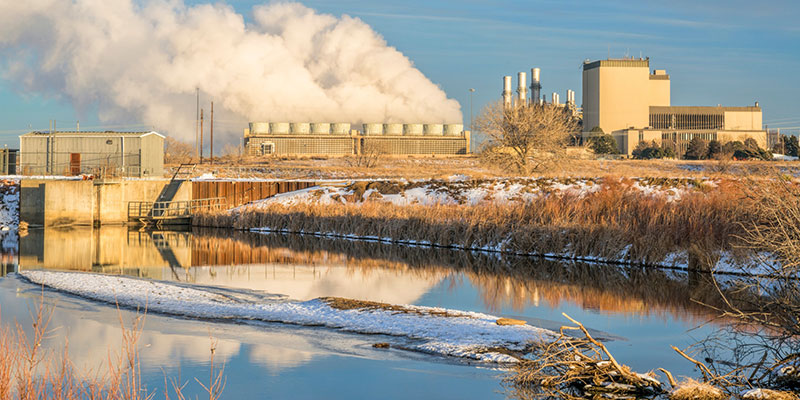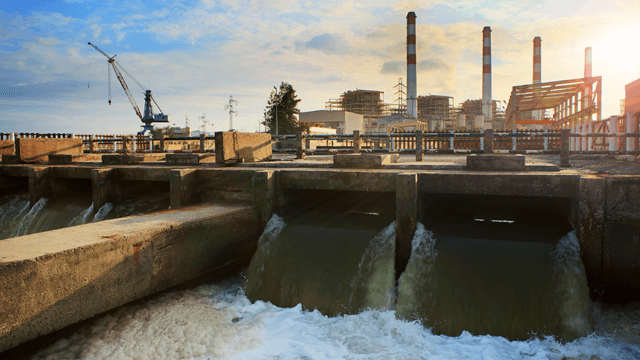Industrial Waste Water Treatment-- Comprehensive Solutions for Wastewater Disposal
Industrial Waste Water Treatment-- Comprehensive Solutions for Wastewater Disposal
Blog Article
Advancements and Breakthroughs in Industrial Waste Water Treatment Technologies
The landscape of industrial wastewater treatment is undertaking a transformative change, driven by developments that enhance both efficiency and sustainability. Emerging technologies, such as membrane layer bioreactors and microbial fuel cells, are redefining pollutant elimination procedures while adding to energy generation. Furthermore, resource recovery methods are obtaining grip, aligning with circular economic climate principles. As regulative requirements progress, the integration of AI and equipment knowing into wastewater administration systems assures to guarantee and enhance operations conformity. The full effects of these developments increase vital questions concerning their scalability and long-lasting effect on market techniques.
Introduction of Drainage Treatment Technologies
Wastewater treatment modern technologies encompass a variety of techniques developed to eliminate contaminants from commercial effluents prior to their release right into the setting. These innovations are critical for preserving environmental equilibrium and making certain compliance with ecological laws. The key categories of wastewater therapy consist of physical, chemical, and organic techniques, each serving distinctive functions based upon the nature of the contaminants existing.

Organic treatment techniques employ microorganisms to degrade raw material, making them specifically efficient for organic-rich effluents. Strategies like activated sludge and biofilm reactors harness the all-natural degradation capacities of microorganisms, resulting in significant decreases in biochemical oxygen demand (BODY)
Advanced Filtering Methods
Advanced filtering methods represent a vital advancement in the realm of commercial wastewater therapy, boosting the performance of impurity removal processes. Industrial Waste Water Treatment. These techniques incorporate an array of technologies, including microfiltration, ultrafiltration, nanofiltration, and reverse osmosis, which offer consecutive barriers for numerous particle dimensions and chemical structures
Microfiltration and ultrafiltration utilize membrane systems to remove suspended solids, microorganisms, and bigger natural molecules, improving the top quality of effluent prior to further therapy. Nanofiltration bridges the gap between ultrafiltration and reverse osmosis, effectively eliminating organic substances and divalent ions, therefore lowering the tons on downstream procedures.
Reverse osmosis supplies the highest degree of filtration by enabling only water and tiny particles to pass through its semi-permeable membranes, making it ideal for recovering high-grade water from industrial effluents. Current developments in membrane technology, including the advancement of more long lasting and fouling-resistant products, have dramatically boosted operational performance and reduced expenses.
Including these sophisticated purification methods not only improves the total therapy procedure yet likewise adds to sustainability efforts by allowing water reuse and resource recuperation in industrial settings. (Industrial Waste Water Treatment)
Organic Therapy Technologies

Moreover, the growth of crafted organic systems, such as membrane bioreactors (MBRs), incorporates biological therapy with sophisticated membrane filtering. This integration permits greater effluent quality and minimized footprint, making it appropriate for space-constrained commercial centers. Developments in genetically crafted microorganisms have additionally arised, improving the biodegradation of certain contaminants, such as pharmaceuticals and heavy steels, that are traditionally challenging to eliminate.
Additionally, the execution of bioaugmentation strategies, where helpful microbes are presented to improve the existing organic therapy procedures, has actually revealed promising cause boosting treatment performance. These technologies collectively signify a fad towards even more effective and sustainable organic treatment methods that can adapt to the progressing complexities of commercial wastewater streams. As sectors remain to prioritize ecological conformity, these organic innovations will play a crucial function in wastewater administration.

Source Recovery Approaches
In commercial settings, the integration of resource recovery techniques has come to be increasingly vital for improving sustainability and minimizing waste. These approaches concentrate on removing valuable materials and energy from wastewater streams, consequently changing potential pollutants into recyclable sources.
One noticeable method is vitamins and mineral recuperation, where nitrogen and phosphorus, frequently present in excess in wastewater, are caught and converted into fertilizers. This not just minimizes ecological effects however also provides a round economic situation option for farming applications. Furthermore, technologies such as anaerobic food digestion permit the conversion of organic waste into biogas, an eco-friendly power resource that can offset nonrenewable fuel source use in commercial operations.
Additionally, progressed filtering and membrane innovations promote the recovery of industrial spin-offs such as metals and salts. These recovered materials can be rehabilitated into manufacturing processes, lowering the demand for virgin resources.
Future Fads in Drainage Administration
As markets significantly prioritize sustainability, the future of wastewater monitoring is readied to go through significant changes. Technological innovations, such as expert system and machine discovering, will certainly make it possible for much more reliable monitoring and management of wastewater systems. These innovations can anticipate upkeep requirements, maximize therapy procedures, and enhance decision-making, eventually minimizing functional expenses and ecological influence.
Additionally, the integration of circular economic climate principles will play a vital Discover More Here duty in wastewater management. Industries Click This Link are anticipated to shift in the direction of systems that not only deal with wastewater however likewise recoup useful resources, such as nutrients, water, and energy. This shift will decrease waste and advertise the reuse of materials, lining up with worldwide sustainability objectives.
Emerging treatment techniques, such as membrane layer bioreactors and progressed oxidation processes, will further improve the performance of wastewater treatment, permitting for greater high quality effluents appropriate for reuse. Furthermore, regulatory structures are most likely to evolve, emphasizing stricter standards for wastewater discharge and motivating sectors to take on cutting-edge therapy solutions.
Verdict
Finally, the advancement of industrial wastewater therapy technologies shows a considerable change towards improved efficiency and sustainability. Advancements in sophisticated filtering techniques, organic treatments, and resource healing methods highlight the industry's commitment to environmental stewardship. The assimilation of synthetic intelligence and artificial intelligence additionally maximizes these processes, ensuring regulatory compliance and promoting a round economic situation. Proceeded improvements in these areas will certainly play a vital role fit the future of wastewater management and protecting essential water resources.
The landscape of commercial wastewater treatment is undergoing a transformative change, driven by developments that improve both efficiency and sustainability.Wastewater therapy technologies incorporate a range of techniques made to remove impurities from commercial effluents prior to their launch right into the environment.Utilizing the power of organic procedures has actually led to substantial developments in the therapy of industrial wastewater.Additionally, the application of bioaugmentation approaches, where valuable germs are presented to boost the existing biological therapy processes, has revealed promising outcomes in boosting therapy efficiency. These innovations collectively indicate a pattern towards more lasting and effective organic therapy methodologies that can adjust to the advancing complexities of commercial wastewater streams.
Report this page